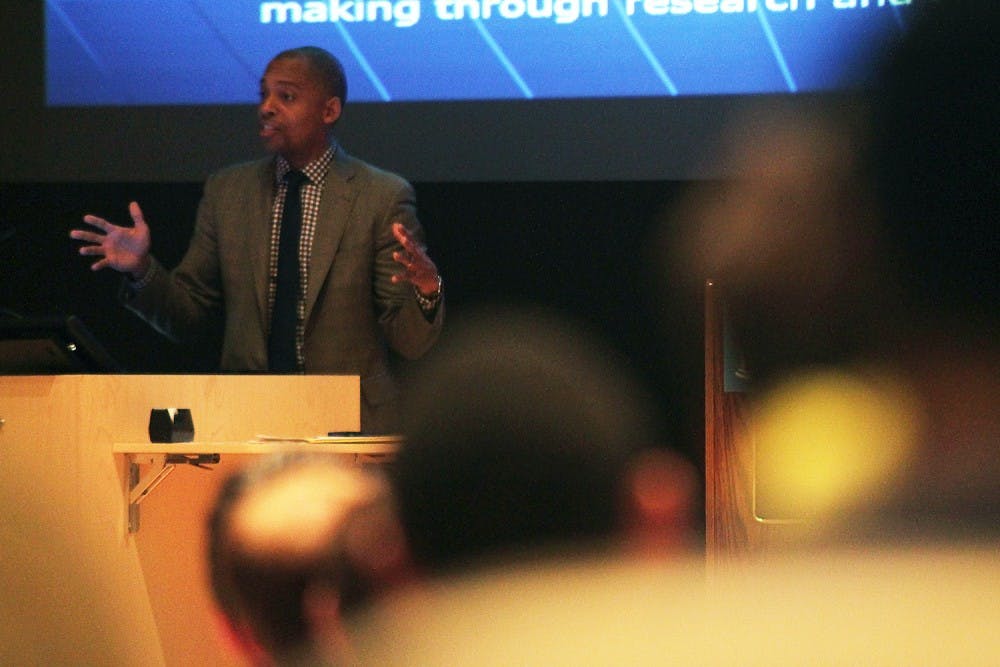For Khalil Gibran Muhammad, this is a defining reason that racism is still prevalent in modern-day America.
Muhammad, director of the Schomburg Center for Research in Black Culture, spoke Tuesday night about why racism persists in the U.S. 50 years after the peak of the civil rights movement.
The event, the 11th annual African-American History Month lecture, was originally scheduled for February but was rescheduled for April due to complications with snow.
Muhammad spoke about racial stereotypes and police violence regarding the events that occurred in Ferguson, Missouri and other cities across the nation. He said racism stems from racial disparity.
“There is a liberal idea that the nation has solved racial problems,” Muhammad said.
However, he said, this can be inaccurate.
“We are having the exact same debate we had 100 years ago regarding race and crime,” Muhammad said. “The history that we remember and that we teach is that every generation is better than the last.”
Muhammad is the author of “The Condemnation of Blackness: Race, Crime, and the Making of Modern Urban America.” He said the events in Ferguson were not an exceptional case but an example of what is occurring across the nation.



